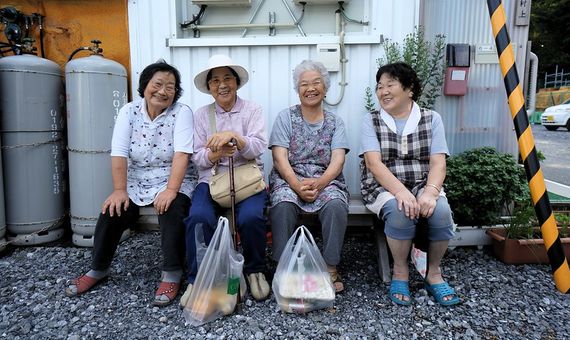Frenchwoman Jeanne Louise Calment is considered to be the longest-lived person in recorded history, from 1875 to 1997, a total of 122 years and 164 days. She was born when Darwin was still alive, met Vincent van Gogh, and died the same year as Princess Diana of Wales, Lady Di. There is still no scientific consensus on the biological limit of human life, and supercentenarians like Calment remain rare, but curiously, they are less so in some specific places. In 2005, writer and explorer Dan Buettner published a report in National Geographic magazine in which he identified “blue zones,” hotspots on the planet whose inhabitants tend to reach ripe old ages. From this research was born the Blue Zones project, which seeks to identify the secrets of long life.
The concept of Blue Zones grew out of studies by Belgian demographer Michel Poulain, Italian physician Gianni Pes and their collaborators, who in 2004 published a study in the journal Experimental Gerontology about the abnormally high proportion of centenarian men in the region of Barbagia on the Italian island of Sardinia. The study cited possible genetic or environmental factors as causes. The researchers apparently marked out the region in blue ink on a map, which led to the naming of these areas. Buettner, interested in the finding, embarked on a collaborative investigation with Poulain and other experts, which led to the identification of four other “blue zones”: the island of Okinawa in Japan, the island of Icaria in Greece, a religious community in Loma Linda, California, and the Nicoya Peninsula in Costa Rica.
Each of these zones has its own peculiarities: while Barbagia is distinguished by the long life of the men, in Okinawa it is the women who reach an advanced age. Icaria has the lowest rates of senile dementia among its long-lived population. In Nicoya, a study by the universities of California and Costa Rica found that its inhabitants have unusually long telomeres—the ends of chromosomes, which shorten with age—20 years younger than they should be. For their part, Loma Linda’s Seventh-day Adventists lead an austere lifestyle and follow a basically vegetarian diet that raises their life expectancy a decade above that of the rest of the country.

Research by Buettner and his associates led to the identification of nine factors that hold the secret to long life. Some relate to health habits, such as intense and regular physical activity, prioritising vegetables in the diet and moderate alcohol consumption, which Buettner says is more beneficial than total abstinence. Other aspects refer to mental state, such as having motivations to get up every morning—in Japan they refer to these reasons for living as ikigai—and reducing stress, something to which customs such as napping, the Eastern tea ceremony or prayer or meditation practices contribute; spirituality is one of the factors highlighted by Buettner’s findings, as are family and social relationships that promote healthy habits. Finally, the inhabitants of Okinawan follow a teaching of Confucianism called hara hachi bu, which is not to eat to satiety, but only to 80% of our stomach capacity. Calorie restriction has shown benefits in animal models and possibly also in humans.
In short, although genetic inheritance for long life is still a matter of scientific study, it is in any event beyond our control. On the other hand, the clues uncovered by these researchers tell us ways we can take steps today to gain years tomorrow.
Elena Sanz and Javier Yanes
Comments on this publication